Security breach leads to change in hall passes
Paper passes return after temporary shut down of e-hallpass
After a breach in e-hallpass, McLean High School swapped to paper passes.
E-hallpass, a controversial subject to the McLean student population, has recently been shut down due to technical difficulties.
The e-hallpass system was implemented at McLean at the beginning of the 2022-2023 school year. While this system was implemented to increase the reliability of hall passes for McLean, it was recently shut down due to a security breach.
“Originally, the county said that they were going to work with the vendor and that e-hallpass would likely be down for about four weeks while they developed a solution,” School-Based Technology Specialist Ashley Lowry said. “However, they were able to develop a solution much faster. So currently, the security risk [for e-hallpass] has been resolved, and it is backed up and running. It’s no longer blocked by the county.”
However, while Fairfax County was working through the issues within the e-hallpass system, McLean High School was making resolutions of their own for the duration that the system was down.
“We had made arrangements as a school to go to the paper and badge system before the [e-hallpass system was fixed],” Lowry said. “We had done all this work to educate the staff on the new system and delivered all the passes and badges. We had also previously been in conversation with a group of teachers about our tardy policies and trying to resolve issues that we’ve been experiencing at school, and one of the suggestions from that teacher committee was that we go back to old-fashioned paper passes.”
Each classroom was given a lanyard which students would use as a hall pass to leave the classroom. The suggestion to revert back to the original paper passes came from the unreliability of the new e-hallpass system, as well as how easy it was to abuse it.
“[With the badge and paper pass system], it’s easier to see where a student is supposed to be and whether or not that student is supposed to be out, without having to carry around a device and check e-hallpass, which people were not always using accurately,” Lowry said. “[Students and teachers] weren’t ending passes, or they weren’t starting passes, and so it was not exactly a foolproof system. So we said, ‘well, we already went through all this effort to create this new system, let’s keep going with it for a few weeks.’”
Students believed that the lanyard passes were more efficient in leaving the classroom compared to the e-hallpass system.
“With e-hallpass, just to go to the bathroom or even get water you had to go onto your phone or computer and fill out a pass, which was more time consuming,” junior Sophia Ragucci said. “The lanyards made it quicker to get in and out of class, and you can just pick it up when you go out the door.”
However, teachers felt that e-hallpass was more efficient during class instruction time.
“I prefer the e-hallpasses because I can automatically set up the bathroom location and students don’t have to interrupt class to ask to use the restroom,” English teacher Michael Barrs said. “It’s a much more efficient system than a lanyard or a pass where I actually have to stop and do some writing.”
The lanyard passes will solely be used for quick trips to the bathroom and water breaks. Students now need to use the paper passes if they would like to move to another class during Highlander Time.
“When you use a paper pass for Highlander Time, you get that pass from a teacher who has invited you to spend time with them and for whom you’re not assigned that period… and you carry that pass,” Lowry said.
McLean will trial the paper and lanyard passes next week. After the trial is over, the administration will reassess the situation and decide whether e-hallpass or the paper passes will continue for the rest of the school year.
“I [heard] from some staff that it’s cumbersome to have to write so many passes and the logistics of it, so it is to be determined whether or not we continue the use of the paper passes,” Lowry said. “We’re not sure how [the new system] works. The main issue with no matter what we do, hardcopy or electronic, is that everyone has to do the same thing and follow the rules.”
Your donation supports the McLean High School's independent, award-winning news publication.



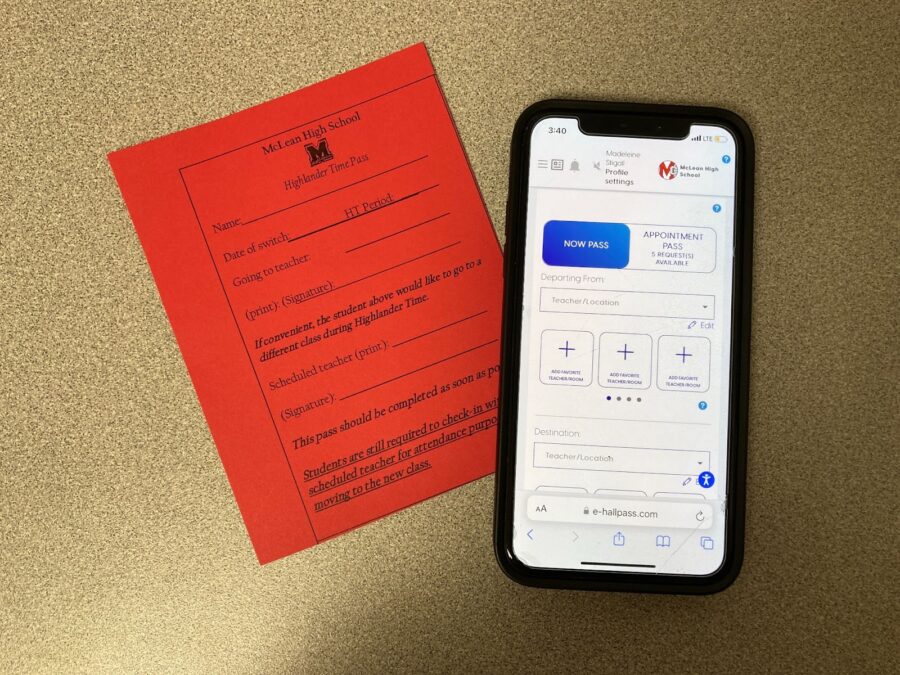
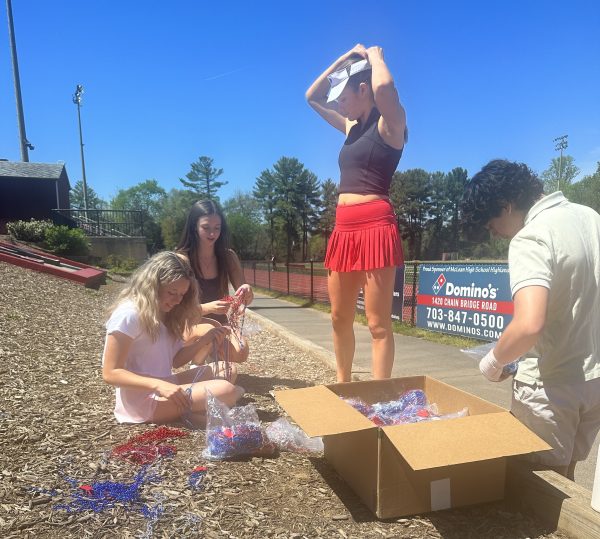
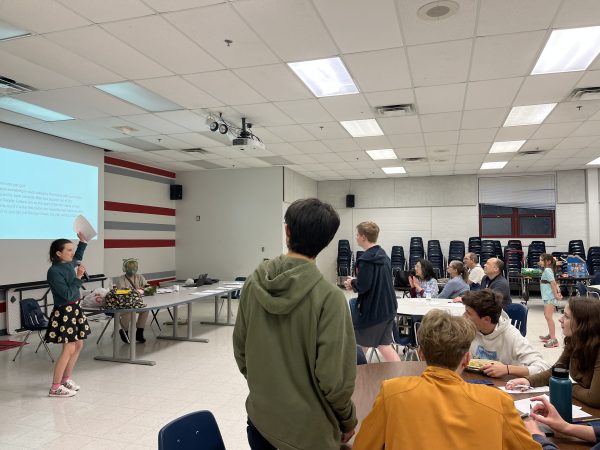
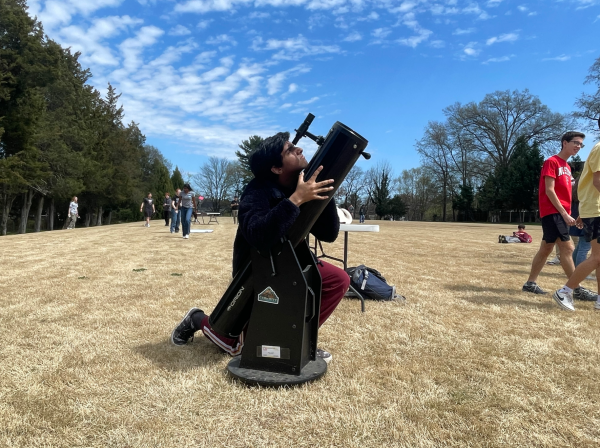


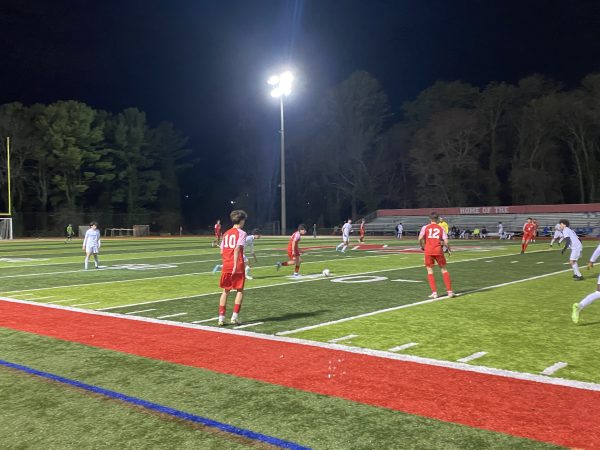


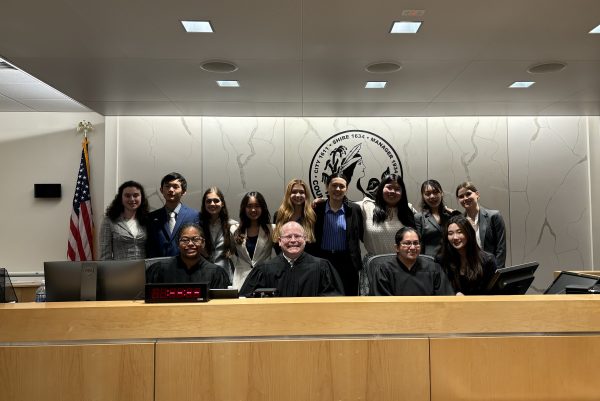
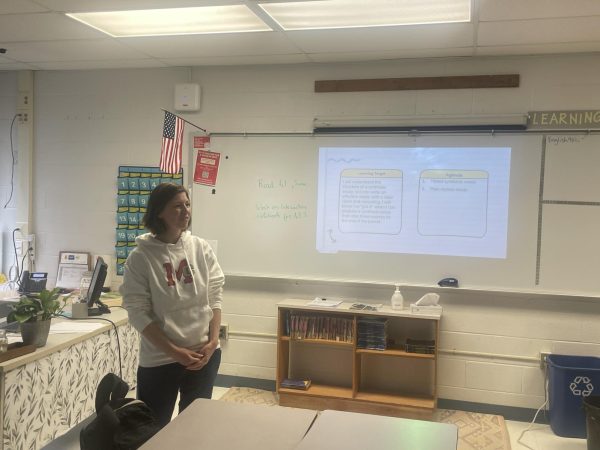

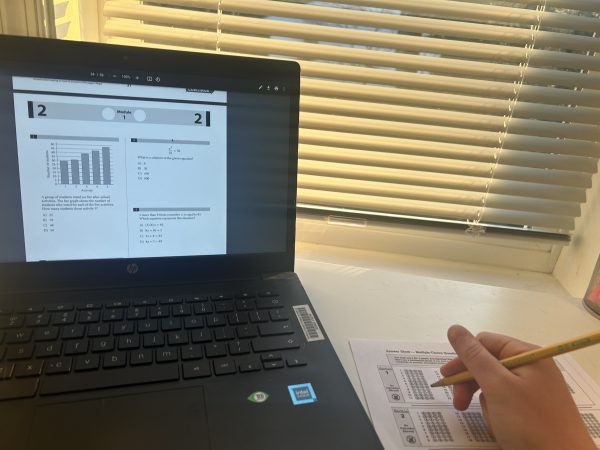

Blue Linden • Mar 15, 2023 at 6:06 pm
Hi! I’m the person who found that security issue! I’m the web manager and developer by default at Justice High School’s The Verdict, and we’ve got an article coming about it pretty soon! It’ll have a bunch of juicy details, including details about three new vulnerabilities not yet disclosed! Have a wonderful day, y’all, and Go Wolves!